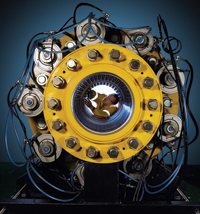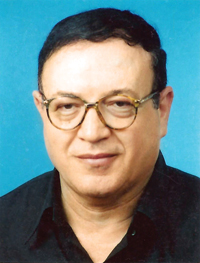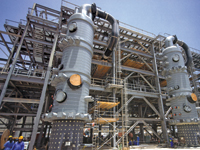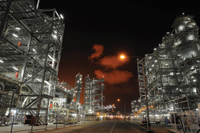
 Ibrahim ... new initiative
Ibrahim ... new initiative
IF OIL and gas wells, x-mass trees are the most valuable assets of oil and gas production facilities, valves are indeed the heart of these assets.
Saudi Arabia-based Oil & Gas Services Gate Company has introduced an online leak sealing service which ensures smooth and safe operation and an extended life of valves thereby leading to reduction of maintenance costs.
According to Haddad Ibrahim, operations manager, Oil & Gas Services Gate Company, this new service injects a flush cleaner fluid specially designed for valves, cleans all deposits on valves ball, gate and plug valves and removes all scale and corrosion inside the valves.
It also applies a specially formulated lubricant to open and close valves easily which helps field operators to control their production process.
 |
OGSG's new initiative eliminates the need |
Ibrahim adds that an integrity test for the serviced valve is performed to see if there’s any leakage of oil or gas.
Last step is injecting a special super sealant into valve seals and seats to stop any leakage inside to make sure downstream is zero pressure.
Additionally, special stem packing materials are developed by Val-Tex Company in the US, to stop valve stem passing or external leaking of crude oil or sour gas to atmosphere, stopping any harm to the personnel or the environment. This technology can be applied to various types of production valves like ball, gate, plug, ZVs, MOVs, PCVs, valves of any brand, any size and any manufacturer.
These can be used for even onshore, offshore and subsea valves seized, jammed, passing, leaking, stuck open, stuck closed valves and hard operation valves, says Ibrahim.
Applying this new technology eliminates the need to change defective valves with new and very costly valves which can have a long lead time to deliver and thus lead to loss of production.
“Our new technology will save 60 per cent maintenance costs of production facilities and extend service life of their facilities’ wells, x-mass trees, valves and equipment,” says Ibrahim.
“Never replace your valve unless you have to,” he adds.












































































